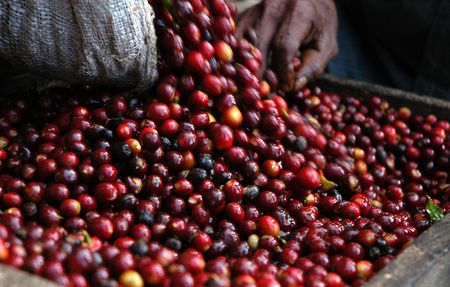Introduction to Organic Coffee Farming
Organic coffee farming is gaining significant momentum across India, especially in states like Karnataka, Kerala, and Tamil Nadu. Unlike conventional coffee cultivation that relies heavily on chemical fertilizers and pesticides, organic methods focus on natural processes and eco-friendly practices. Indian farmers are increasingly recognising the value of organic coffee due to rising global demand for healthier, chemical-free produce. This approach not only nurtures the land but also preserves biodiversity and supports traditional agricultural wisdom handed down through generations. By shifting to organic farming, Indian growers are embracing a sustainable future that respects both the environment and their local communities.
2. Environmental Benefits for Local Ecosystems
Organic coffee farming brings significant environmental advantages to Indian coffee-growing regions, such as Coorg in Karnataka, Wayanad in Kerala, and Araku Valley in Andhra Pradesh. By avoiding synthetic chemicals and fertilizers, organic methods help protect the rich soil of these areas, which is crucial for long-term farm productivity. The absence of chemical run-off ensures that local rivers and water bodies remain clean and safe for both wildlife and rural communities. In addition, organic practices encourage the growth of native shade trees and ground cover crops, preserving the biodiversity that makes Indian coffee plantations unique. Farmers often intercrop spices like pepper or cardamom with coffee plants, further enhancing soil health and ecosystem balance.
Key Environmental Benefits
| Benefit | Description | Local Impact |
|---|---|---|
| Soil Protection | Improves fertility and reduces erosion by using compost, mulching, and cover crops. | Ensures healthy yields over multiple harvests in hilly regions like Chikmagalur. |
| Biodiversity Preservation | Supports birds, insects, and native flora by maintaining shade trees and mixed cropping systems. | Helps sustain pollinators important for both coffee and spice crops in Kerala estates. |
| Sustainable Water Management | Reduces water pollution by eliminating chemical residues and encourages rainwater harvesting techniques. | Keeps streams in tribal areas like Araku Valley clean for agriculture and daily use. |
Real-life Example from South India
Many Indian coffee farmers have adopted organic methods not only for better prices but also to rejuvenate their land. For instance, smallholders in Coorg report improved groundwater levels after switching to organic farming practices. By focusing on natural resource management, these farmers are setting an example of how traditional Indian wisdom can blend with modern sustainability goals.
A Step Towards a Greener Future
The shift towards organic coffee cultivation is helping Indian farmers protect their land for future generations while contributing positively to global climate action efforts. This environmentally friendly approach aligns with the Indian philosophy of living in harmony with nature – “Vasudhaiva Kutumbakam” (the world is one family).
![]()
3. Economic Advantages for Indian Farmers
Organic coffee farming offers significant economic benefits to Indian farmers, making it an attractive option for those looking to improve their livelihoods. Firstly, organic coffee beans often fetch premium prices in both domestic and international markets. With consumers increasingly valuing health and sustainability, Indian growers can secure better returns compared to conventional coffee. This price advantage is especially relevant in India, where specialty coffee culture is steadily growing and buyers are willing to pay extra for certified organic produce.
Secondly, organic practices help lower input costs by reducing or eliminating the need for expensive chemical fertilizers and pesticides. Instead, farmers use locally available resources like compost, cow dung, and natural pest repellents, all of which are more sustainable and cost-effective in the long run. In regions like Karnataka and Kerala, where traditional knowledge of natural farming inputs is strong, this approach aligns well with local agricultural wisdom.
Additionally, by maintaining healthy soils and biodiversity on their farms, Indian coffee growers can achieve better yields over time while also diversifying their income sources. Many organic farmers interplant shade trees, spices, or fruit crops alongside coffee, creating multiple revenue streams. This resilience against market fluctuations provides a financial cushion and greater profitability for smallholder families.
Overall, switching to organic coffee cultivation empowers Indian farmers not only to earn more but also to invest in their community’s future through sustainable land management and higher-quality products that reflect India’s unique terroir.
4. Health and Social Impact on Farming Communities
Organic coffee farming in India brings remarkable health and social benefits to local communities. By moving away from synthetic pesticides and chemical fertilizers, farmers, workers, and their families experience fewer health risks. Exposure to harmful agrochemicals is a common issue in conventional farming, often leading to respiratory problems, skin diseases, and other chronic illnesses. The organic approach significantly reduces these dangers, ensuring a safer environment for everyone involved.
| Aspect | Conventional Coffee Farming | Organic Coffee Farming |
|---|---|---|
| Health Risks | High due to pesticide exposure | Low, minimal chemical usage |
| Water Quality | Often contaminated by runoff | Cleaner, less pollution |
| Community Well-being | Weaker due to individualistic practices | Stronger through collective efforts |
In Indian villages, where family ties are central to daily life, the switch to organic methods nurtures stronger community bonds. Organic farming encourages cooperation among farmers through sharing of traditional knowledge, seeds, and resources. This collaborative spirit is deeply rooted in Indian culture and helps revive age-old agricultural wisdom that strengthens trust within the community.
The Role of Women and Youth in Organic Communities
The transition to organic coffee farming opens more inclusive opportunities for women and youth. Without the need for handling toxic chemicals, women can participate more actively in farm work and decision-making processes. Young people also find renewed interest in agriculture when it aligns with sustainable values and offers healthier livelihoods.
Social Gatherings and Knowledge Sharing
Organic farming fosters community gatherings such as Farmer Field Schools (FFS), where experiences are shared and new techniques are learned collectively. These events boost social cohesion and empower smallholder farmers across Karnataka, Kerala, Tamil Nadu, and Andhra Pradesh—India’s major coffee-growing states.
A Healthier Future for Rural India
The cumulative impact of organic coffee farming means healthier families, cleaner environments, and stronger village networks. As Indian farmers continue embracing organic practices, they not only safeguard their own well-being but also pave the way for a more resilient and united rural society.
5. Government Support and Schemes in India
For Indian coffee farmers, especially smallholders, the government provides significant support to encourage the shift towards organic agriculture. These initiatives aim to improve productivity, ensure sustainable farming practices, and enhance market opportunities for organic coffee. Here are some key policies and schemes that benefit Indian organic coffee growers:
Paramparagat Krishi Vikas Yojana (PKVY)
This flagship scheme promotes organic farming through group and cluster approaches. Under PKVY, farmers receive financial assistance for adopting organic practices, certification costs, and marketing their produce. The scheme helps create awareness about eco-friendly farming and provides technical guidance at the grassroots level.
Mission Organic Value Chain Development for North Eastern Region (MOVCDNER)
Specifically designed for the North Eastern states, this mission supports organic coffee cultivation by providing subsidies for input costs, certification, value addition, and market linkages. It empowers local farmers to adopt sustainable techniques while ensuring better income generation through access to premium markets.
Coffee Board of India Initiatives
The Coffee Board runs several programs to promote organic coffee cultivation. These include training workshops on organic methods, supply of bio-inputs like composting material and bio-fertilizers, as well as support in getting organic certification. They also facilitate participation in trade fairs and exhibitions to connect farmers with buyers interested in Indian organic coffee.
Subsidies and Financial Assistance
Indian government offers subsidies on inputs like organic fertilizers, biopesticides, and drip irrigation systems. Smallholder farmers can also avail low-interest loans under various agricultural credit schemes tailored for organic farming transitions. These financial incentives reduce the initial investment burden for rural families.
Market Access & Export Promotion
The Agricultural and Processed Food Products Export Development Authority (APEDA) supports export-oriented organic coffee production by assisting with international certification processes and facilitating connections with global buyers. This creates new revenue streams for Indian farmers by tapping into the growing demand for high-quality organic coffee worldwide.
These comprehensive government efforts make it easier for Indian farmers to embrace organic coffee farming, ensuring a healthier environment and better livelihoods for rural communities across the country.
6. Export Potential and Global Market Opportunities
India’s rich coffee-growing regions, from the Western Ghats in Karnataka to the hills of Kerala and Tamil Nadu, have long been known for their unique flavours and high-quality beans. In recent years, with the growing global demand for sustainable and ethically-produced coffee, organic coffee farming has opened new doors for Indian farmers in international markets. Countries like the United States, Germany, Japan, and Australia are increasingly seeking organic certified products, making Indian organic coffee a valuable export commodity.
Growing International Demand
Consumers worldwide are becoming more health-conscious and environmentally aware. They are willing to pay a premium for products that are cultivated without harmful chemicals and with fair labour practices. Indian organic coffee meets these expectations by adhering to strict certification standards such as USDA Organic or EU Organic. This not only gives Indian farmers access to lucrative markets but also builds trust among global buyers.
Meeting Quality Standards
To tap into these opportunities, Indian coffee growers must maintain consistent quality and certification compliance. Training programmes led by cooperatives and NGOs help smallholders meet international standards in processing, packaging, and traceability. This ensures that Indian organic coffee competes effectively with other major producers like Ethiopia and Colombia.
Boosting Rural Livelihoods
Exporting organic coffee provides Indian farmers with better price realisation compared to conventional markets. It encourages sustainable rural development by creating jobs in processing units, transportation, and export logistics. The increased income can be reinvested into farms and local communities, thereby improving overall living standards.
In summary, embracing organic coffee cultivation allows Indian farmers not just to protect their environment but also to connect with a rapidly expanding global market. By focusing on quality, certifications, and ethical production, Indian organic coffee can build a strong brand identity worldwide—benefiting both growers and consumers alike.
7. Challenges and the Way Forward
While organic coffee farming offers numerous benefits for Indian farmers, the transition from conventional methods is not without its set of challenges. Many farmers face initial difficulties such as higher labour requirements, lower yields in the first few seasons, and lack of immediate market access for organic produce. Additionally, obtaining organic certification can be a lengthy and costly process, especially for smallholders in regions like Karnataka and Kerala.
Another key challenge is limited awareness and technical know-how regarding organic practices. Farmers often require training on preparing natural composts, pest management using bio-solutions, and crop rotation suited to Indian soil conditions. Moreover, unpredictable monsoon patterns and climate change add another layer of complexity for those shifting to chemical-free cultivation.
To overcome these barriers, collaboration is essential. Local government bodies and NGOs should provide capacity-building workshops in regional languages such as Hindi, Kannada, or Tamil. Forming farmer producer organisations (FPOs) enables small growers to pool resources for certification costs and collectively negotiate better prices with buyers.
For long-term success, access to affordable credit and insurance schemes tailored to organic coffee growers must be improved. Digital platforms can play a pivotal role by connecting Indian farmers directly with domestic and international markets that value sustainable coffee. Sharing real-life success stories from fellow Indian coffee growers can also inspire others to adopt organic practices.
The way forward lies in a combination of knowledge sharing, community support, government incentives, and building robust supply chains dedicated to organic coffee. By addressing these challenges head-on, Indian farmers can ensure both environmental sustainability and better livelihoods for generations to come.

